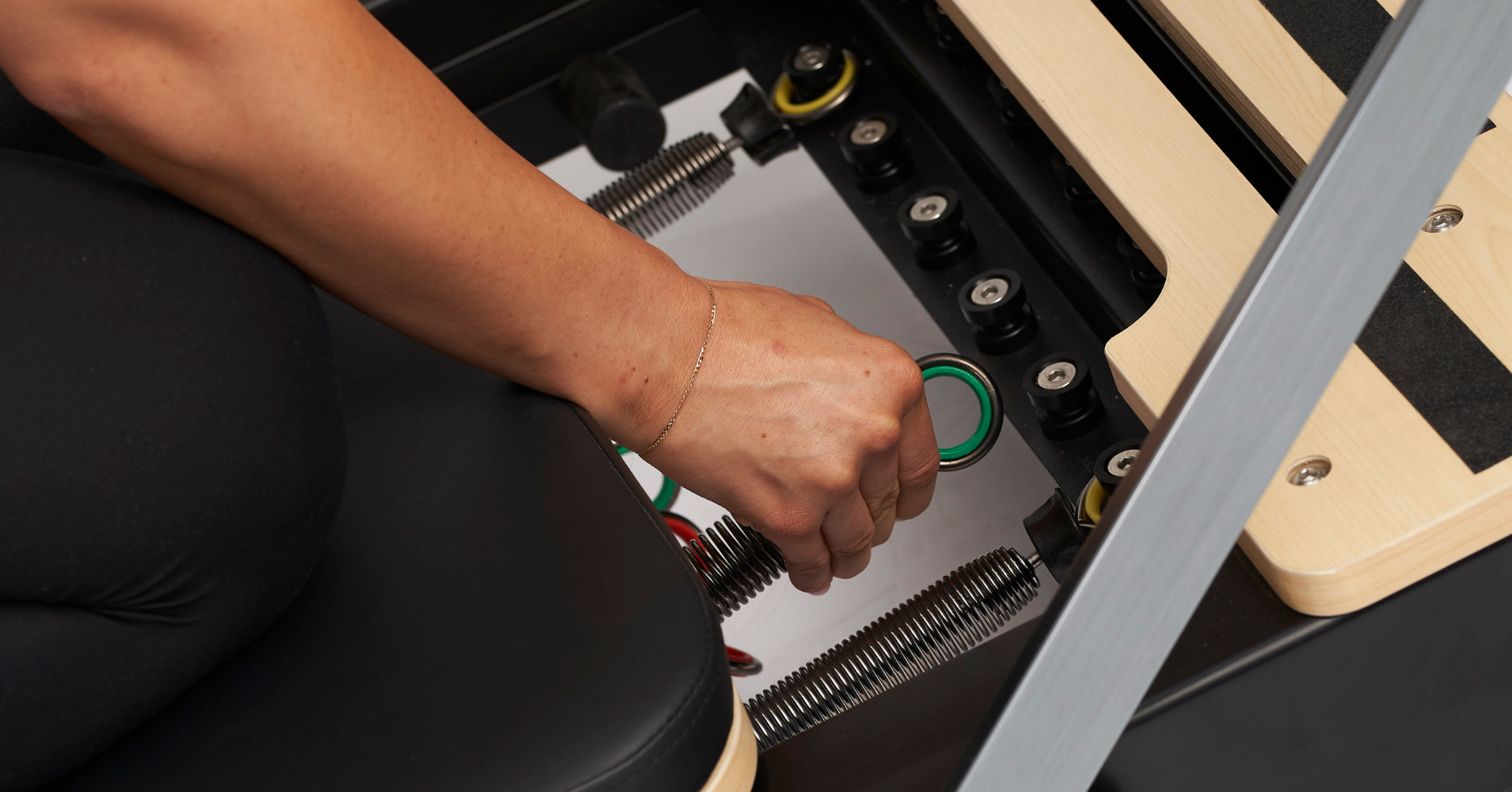
Is Reformer Harder Than Pilates?
Ever wondered if reformer workouts are genuinely harder than regular Pilates?
This is a question I frequently get from customers and fitness enthusiasts alike. Having spent years specialising in premium reformer equipment here at FitBoutique, I’m here to share my personal insights and experiences.
What exactly sets reformer apart from regular Pilates?
Pilates in general focuses on core strength, balance, and flexibility. Traditional Pilates often involves mat exercises, using your body weight as resistance. Reformer Pilates, however, adds complexity with springs, a moving carriage, and various accessories like straps and bars. This complexity provides adjustable resistance and support, creating unique challenges for the body.
At first glance, reformer Pilates might seem easier due to the support provided by the equipment. But this initial impression quickly changes. Exercises on a reformer demand precise control and coordination, pushing your muscles in ways traditional Pilates simply can't match.
Why reformer Pilates can feel more challenging
Initially, traditional Pilates may feel tougher because your body relies entirely on its own strength and balance. However, reformer Pilates quickly ramps up the intensity by engaging deeper muscles through controlled movements. I've personally observed many customers surprised by how quickly the reformer intensifies their workouts.
The precision and controlled movements required on a reformer activate smaller stabilising muscles that are often neglected in regular Pilates routines. Equipment like our foldable Onyx reformer particularly amplifies this challenge.
Workout intensity—how does reformer stack up?
Intensity isn't solely measured by sweating or fatigue—it’s also about targeted muscle engagement. Reformer Pilates excels here, enabling you to target specific muscles more effectively. In my experience, reformer workouts have consistently resulted in deeper muscle activation compared to traditional Pilates exercises.
For those looking to understand more about why reformer Pilates is particularly effective, I suggest exploring the full-body benefits of reformer workouts. Equipment such as our Ivory Fold Reformer can further enhance this targeted intensity, allowing adjustments to match your fitness level.
Reformer Pilates gets tougher as you progress
Something I regularly see is beginners initially finding reformer easier due to guided movements, only to quickly realise its true challenge. With experience, reformer Pilates demands increased precision and control, ensuring a continually evolving workout.
This level of control makes reformer Pilates incredibly effective for strength, toning, and even rehabilitation. Many physiotherapists I've collaborated with regularly recommend reformer Pilates for this reason. Feel free to contact me directly for tailored advice based on your fitness goals.
Personal preference makes all the difference
The real question of whether reformer is harder than regular Pilates ultimately boils down to your fitness goals and personal preferences. Some people love traditional Pilates for its simplicity, while others—myself included—appreciate the versatility and adjustable resistance offered by reformers.
Opinions within fitness communities vary. Some swear by reformer workouts for targeted muscle toning, while others prefer the minimalism and accessibility of traditional Pilates. Both perspectives have merit.
My recommendation: If you're looking to intensify your Pilates experience or want structured guidance, investing in a reformer like our Onyx Fold or Ivory Fold reformers is an excellent choice.
Final thoughts—Is reformer Pilates actually harder?
The short answer is—it depends. However, reformer Pilates unquestionably offers a unique challenge, activating muscles in ways traditional Pilates cannot. For additional insight, you might enjoy this external perspective on how Pilates can impact your fitness journey differently.
No matter your choice, consistency remains crucial. Select the Pilates method you enjoy most to sustain long-term fitness success. And remember, if you're ever unsure, I'm here to help you find your perfect Pilates fit.
Reformer Pilates Range
Frequently Asked Questions
How much space do I need for a reformer bed?
Space Requirements for Your Reformer
A FitBoutique reformer requires approximately 245cm x 68cm (2.45m x 0.65m) of floor space. Here's what this means for your space planning:
For Home Users
Length: 245cm (8.04 feet)
Width: 68cm (2.13 feet)
Recommended clearance: Add at least 30cm on each side and end for comfortable access
Total recommended space: 305cm x 125cm (3.05m x 1.25m)
For the Onyx Fold model specifically:
Same footprint when in use (245cm x 65cm)
When folded: Takes up significantly less floor space in vertical storage
Ceiling height consideration: Ensure adequate height for vertical storage
What's the difference between commercial and home reformers?
While both offer similar exercise capabilities, commercial reformers typically feature heavier-duty construction, enhanced weight capacity, and more extensive warranty coverage. However, premium home models like the Onyx series bridge this gap with commercial-grade components.
How often should I maintain my reformer?
Regular maintenance includes weekly cleaning, monthly hardware checks, and quarterly deep cleaning of tracks and wheels. Premium reformers come with detailed maintenance guides to ensure optimal performance and longevity.


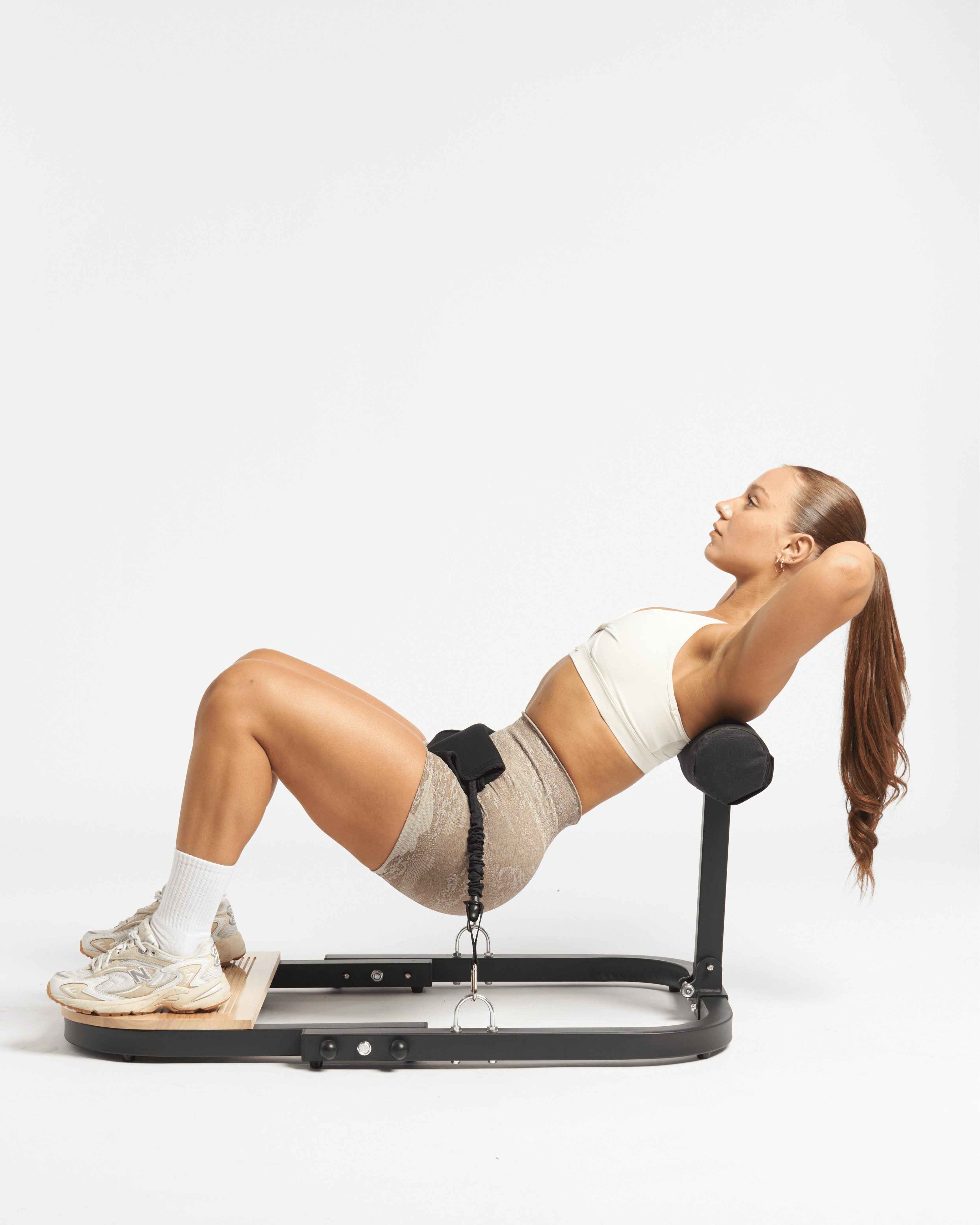
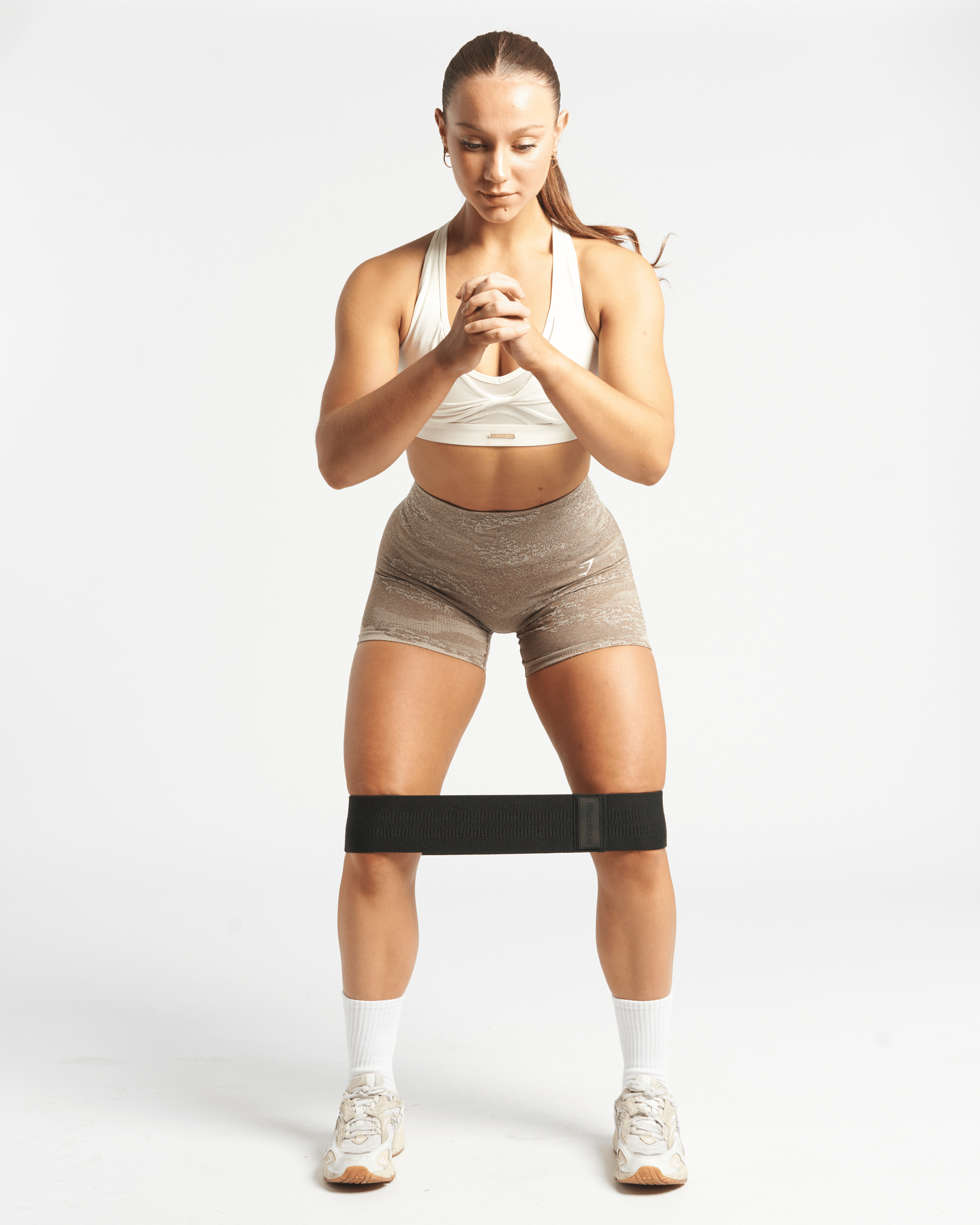
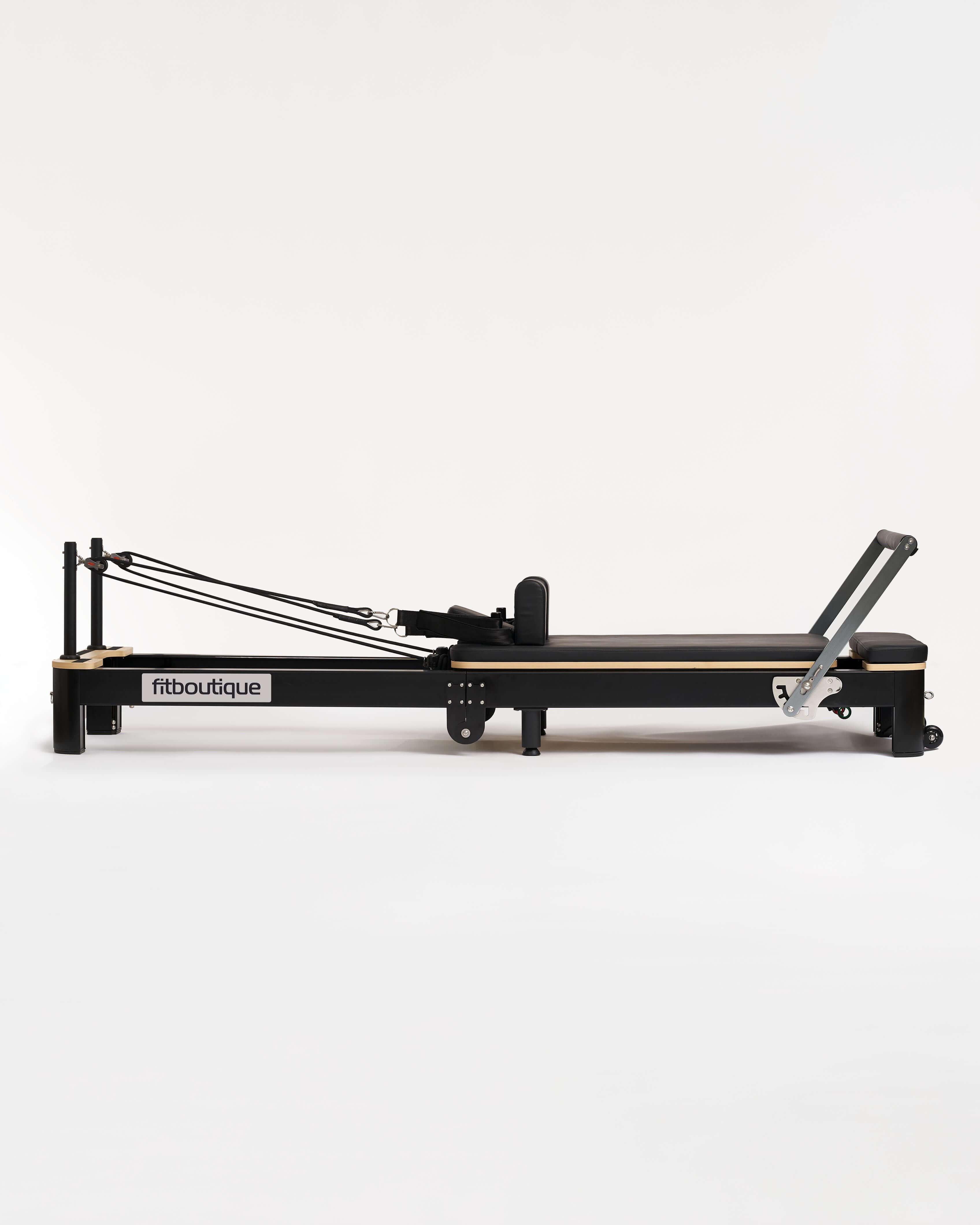
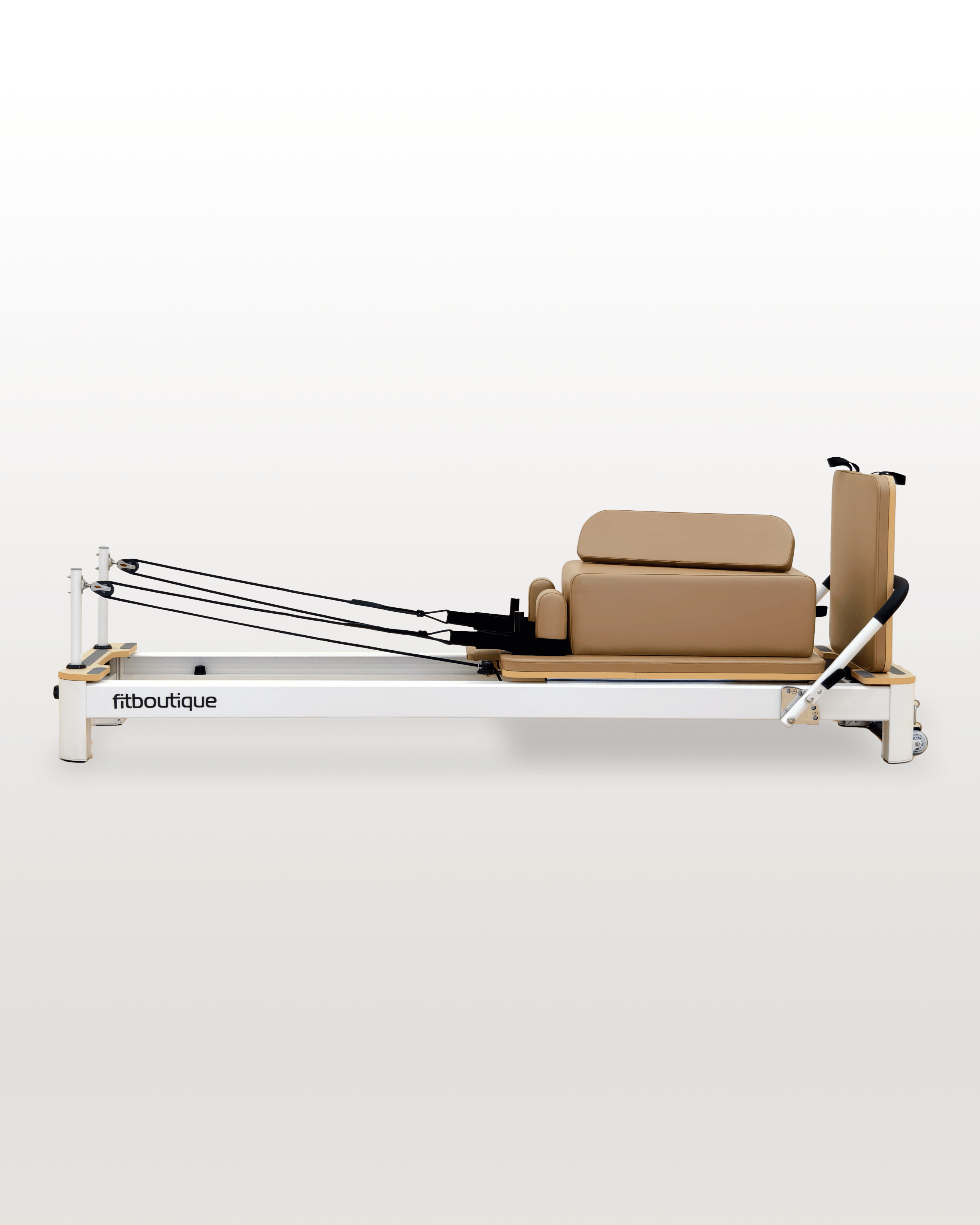





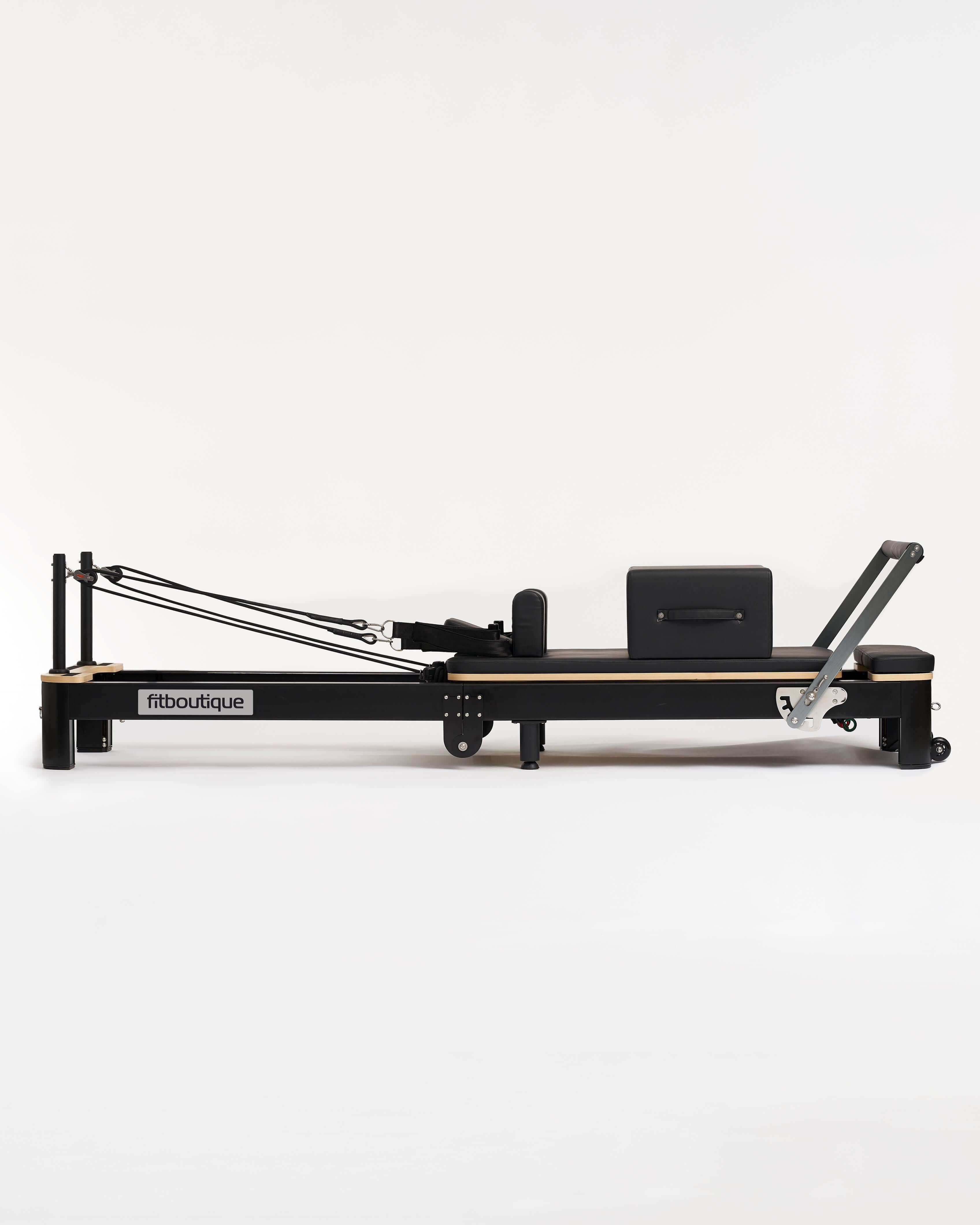
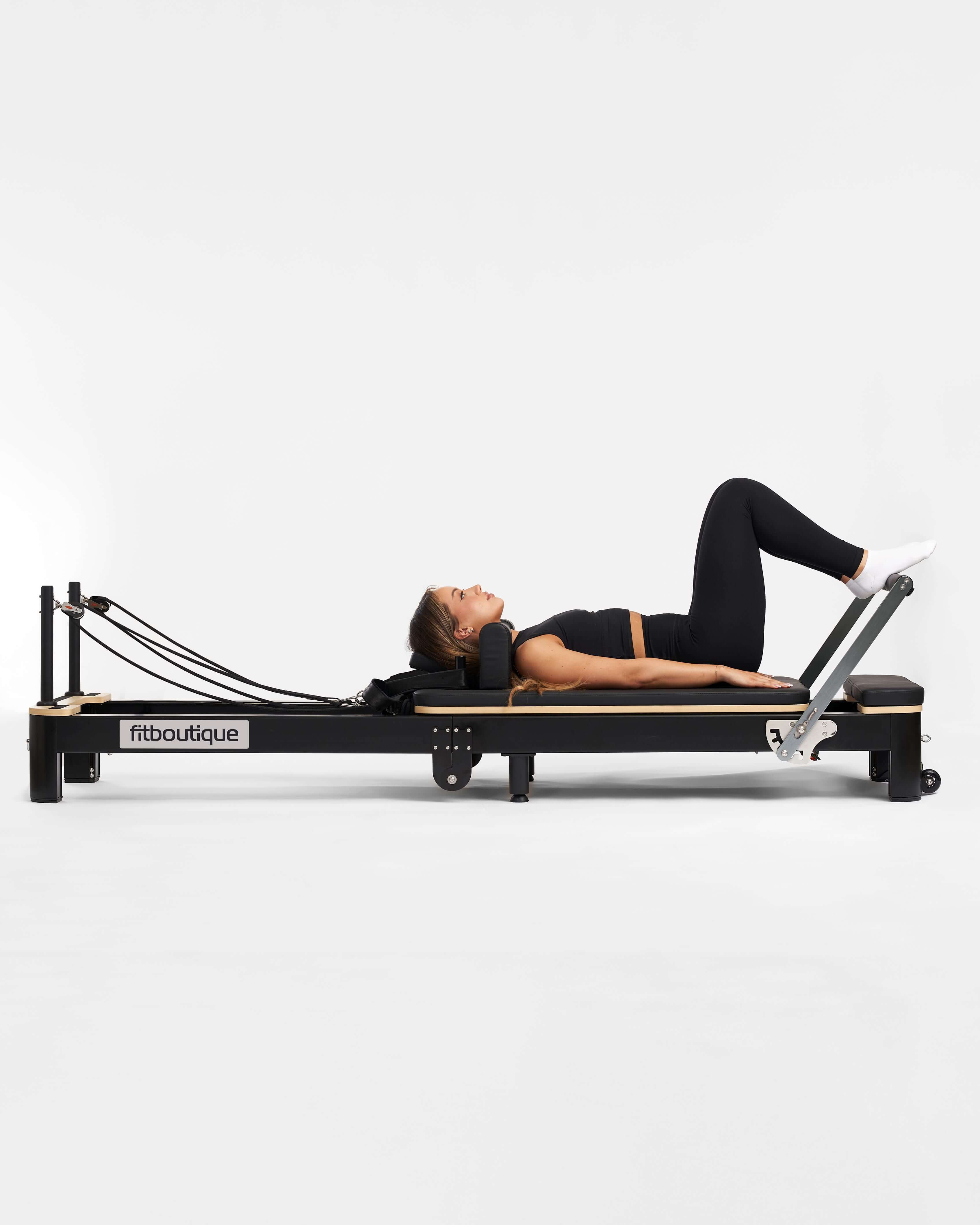

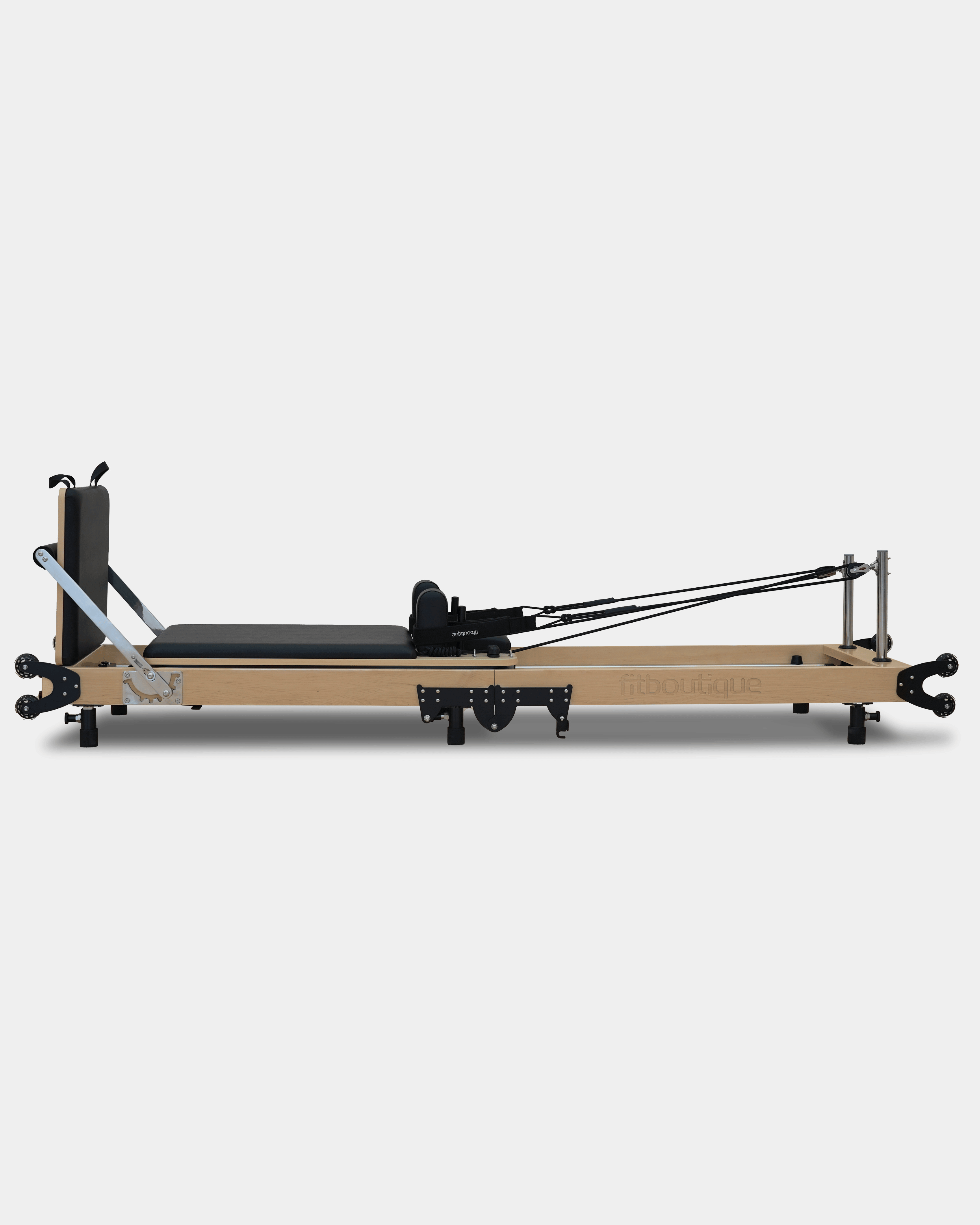

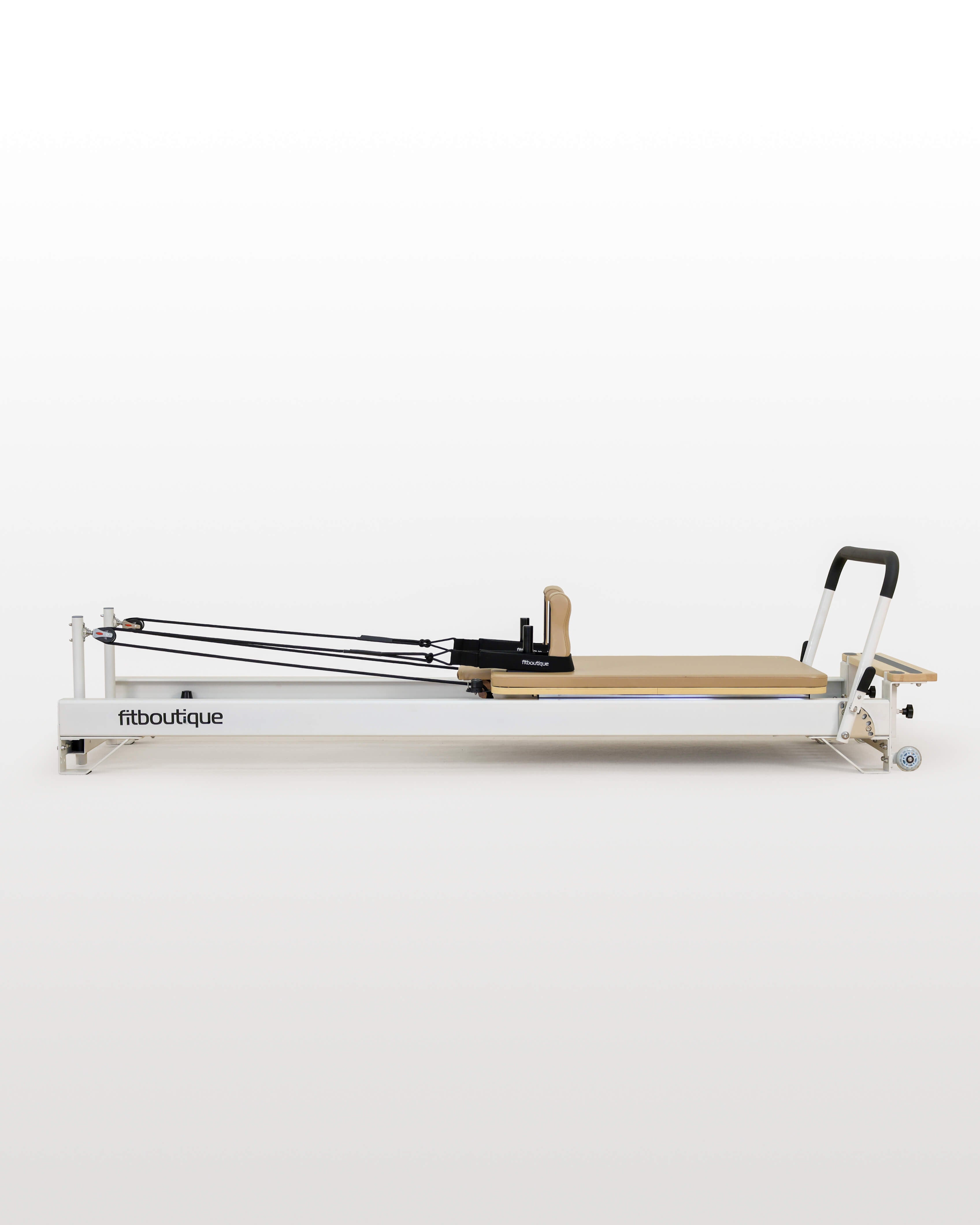
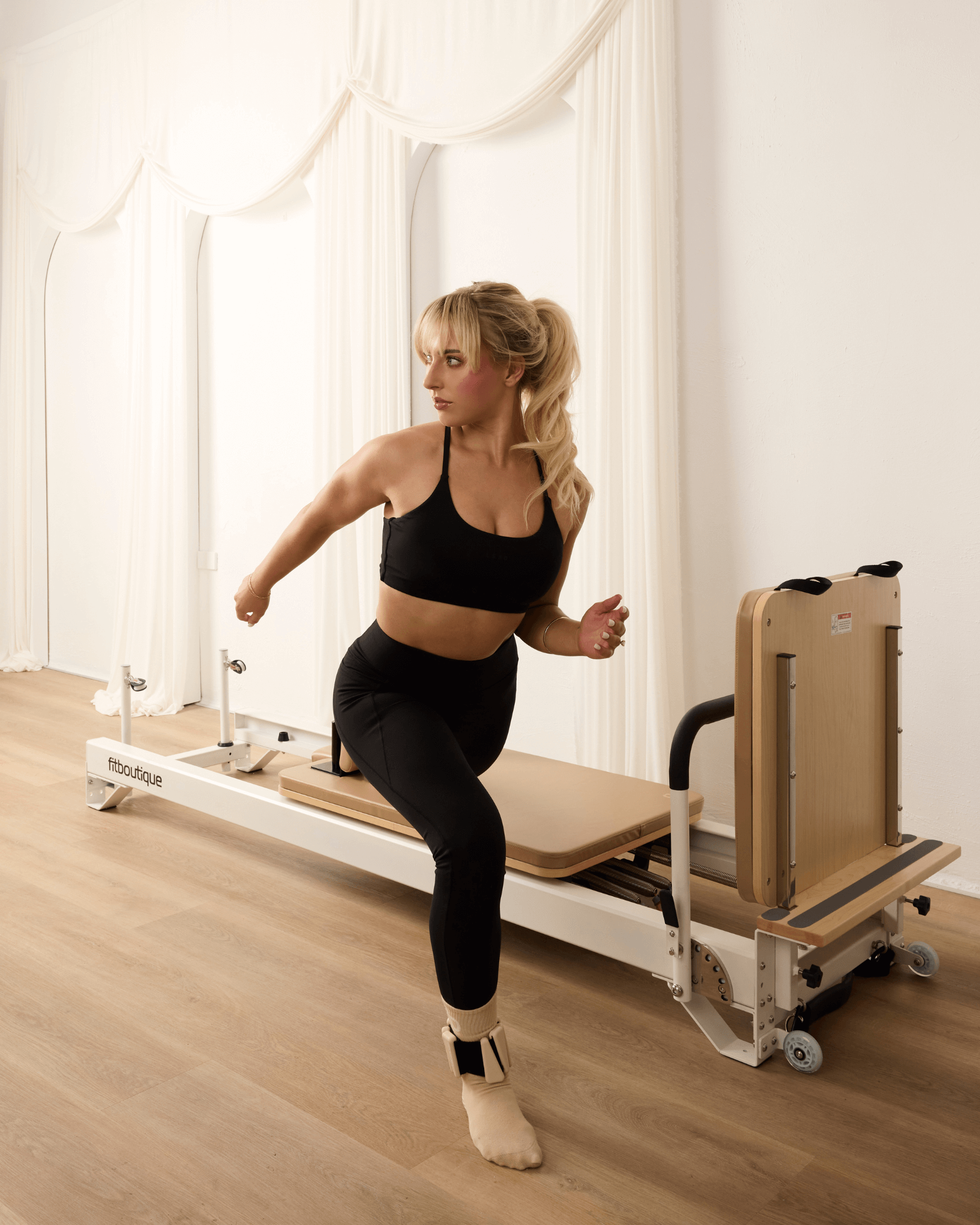
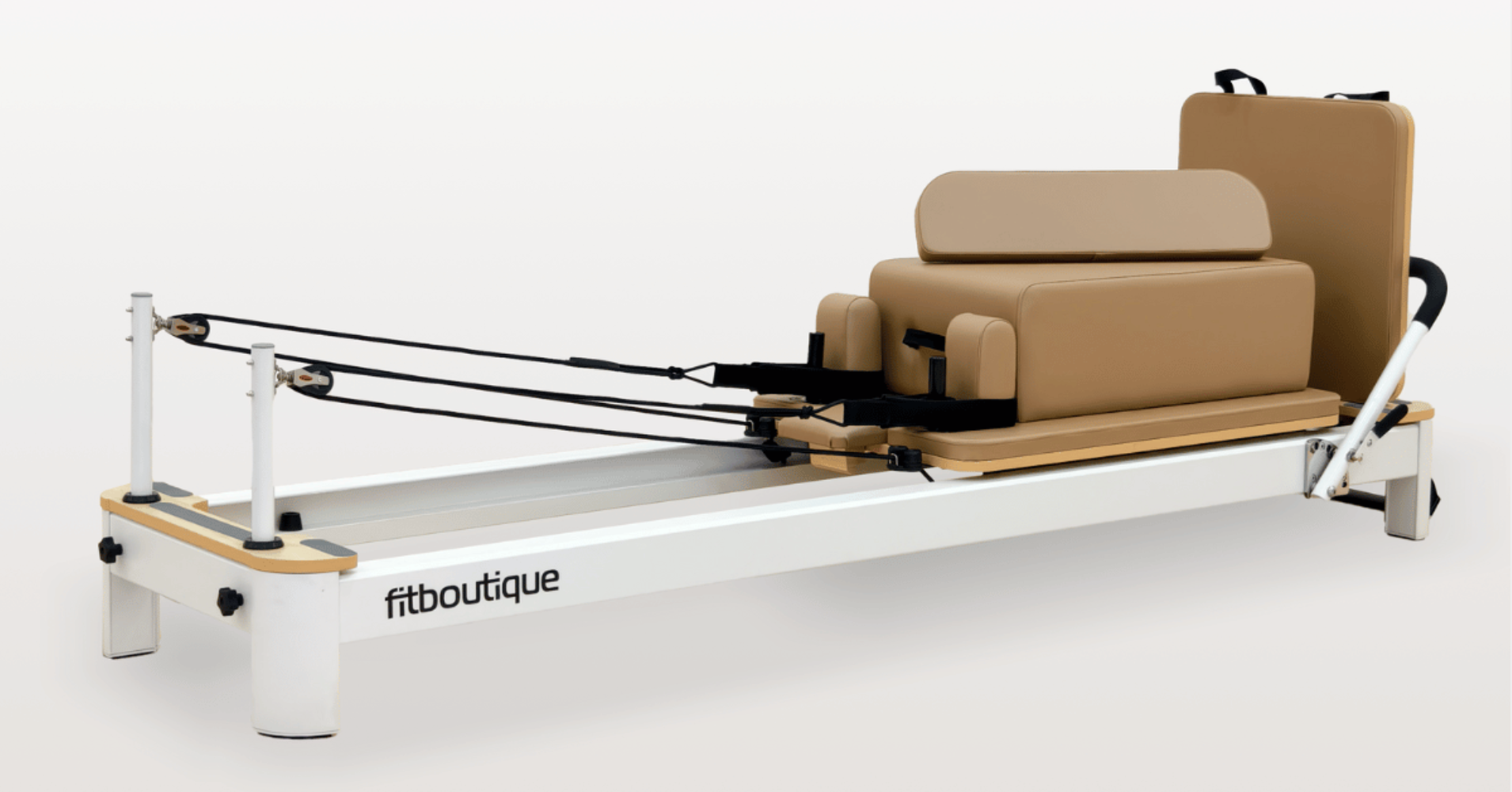
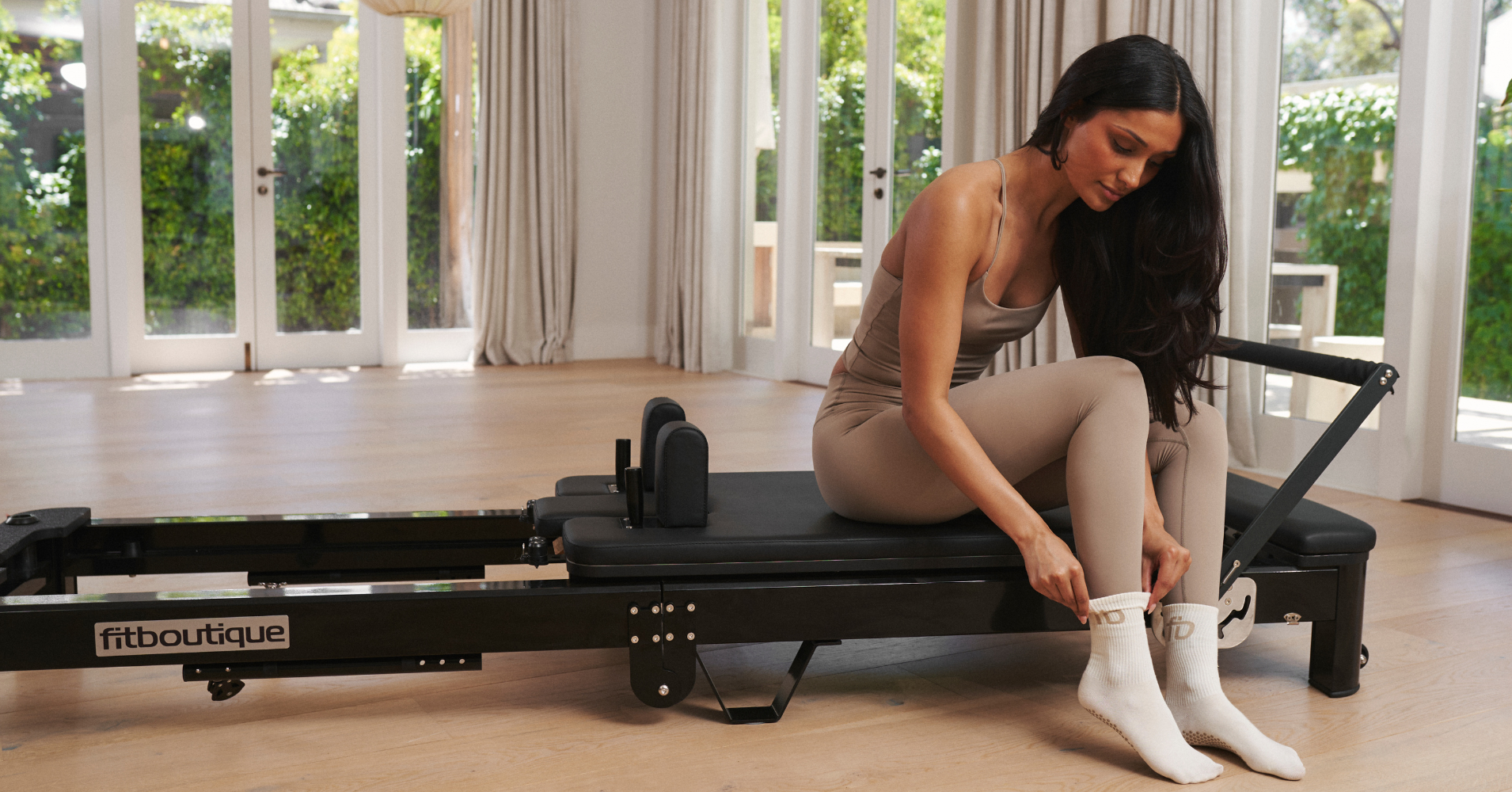
Leave a comment